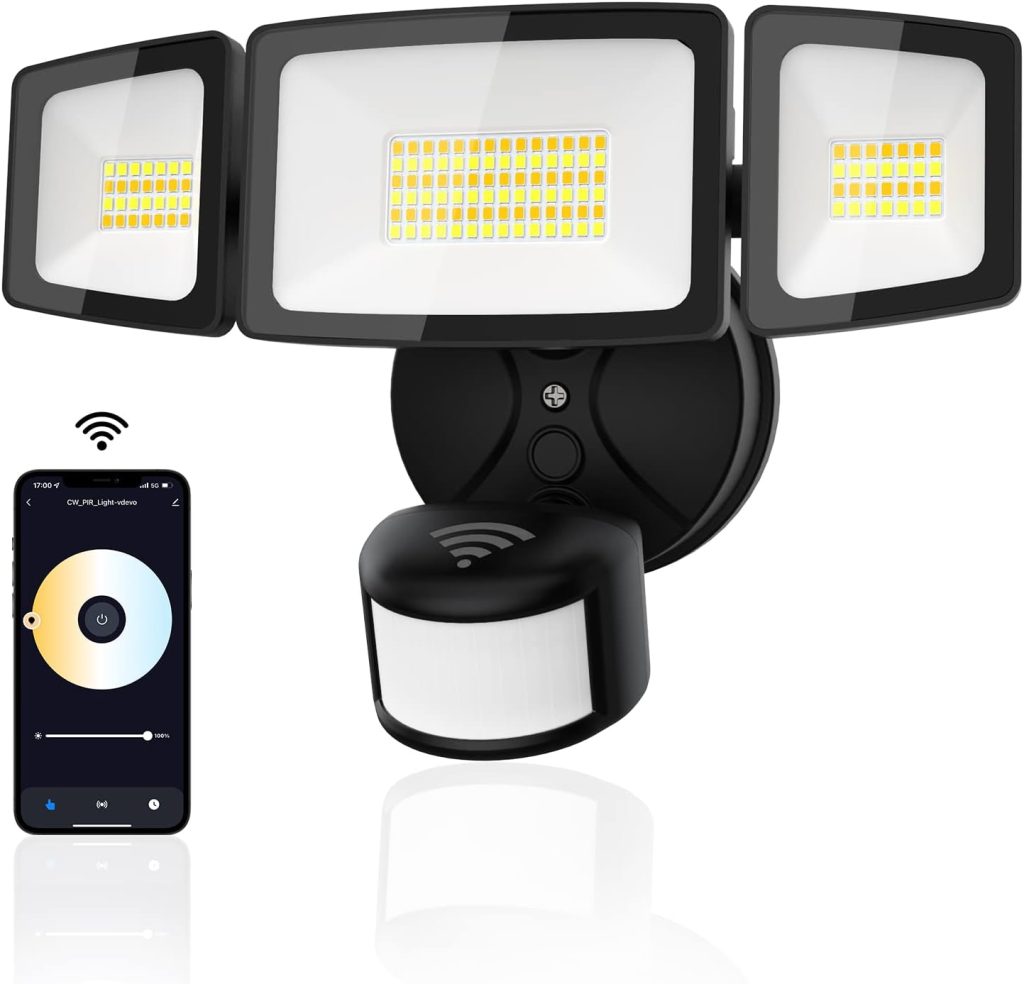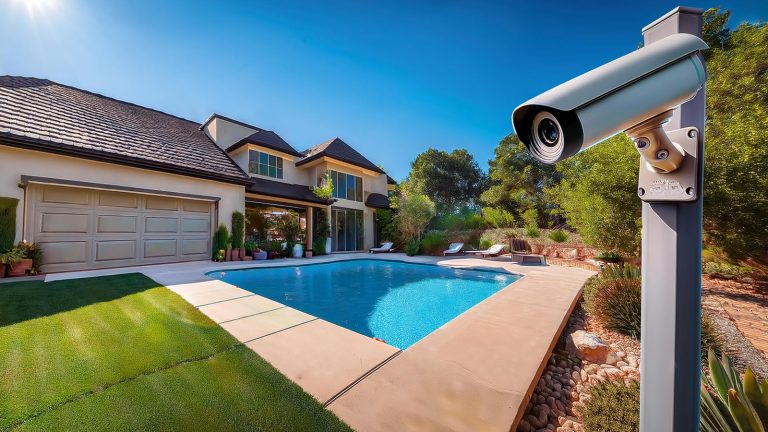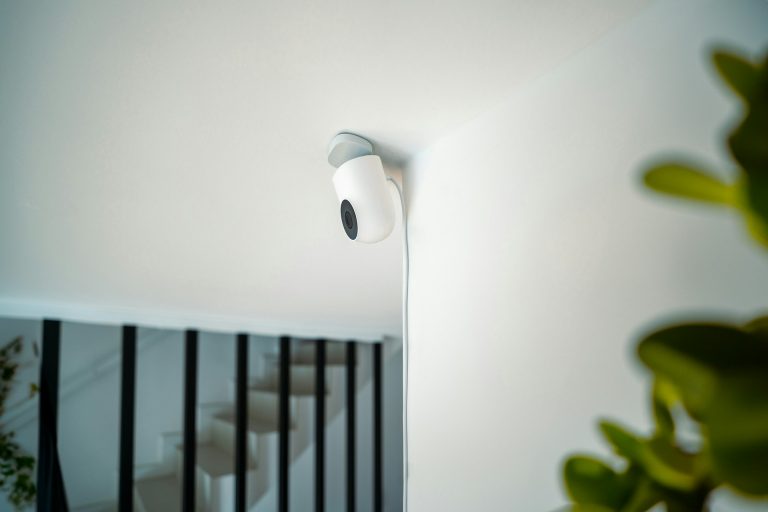
As we age, ensuring our safety becomes increasingly important. Home security is a vital aspect of maintaining peace of mind and independence. Here are ten practical tips to enhance home defense for seniors:
1. Light Up Your Space
Motion-activated lights can be an invaluable addition to your home defense strategy, especially for seniors. These lights illuminate dark areas around your home, deterring potential intruders and providing added visibility during nighttime.

Recommended Light
Onforu 55W Smart LED Security Lights with App control + Alexa and Google Assistant support!
Place them strategically near entry points like doors and windows, as well as along pathways and in dark corners. Not only do they enhance security by alerting you to any movement outside, but they also reduce the risk of tripping or falling when navigating around your property at night. Opt for lights with adjustable settings to customize the sensitivity and duration of illumination according to your preferences.
2. Secure Doors and Windows
Securing windows and doors is a fundamental aspect of home defense, particularly for seniors who may be more vulnerable to intrusions or attacks. Here’s why:
Preventing Unauthorized Entry: Windows and doors are the most common points of entry for burglars and intruders. By reinforcing them with sturdy locks, you create a barrier that deters potential threats from gaining access to your home. This is crucial for seniors who may live alone or have limited physical ability to defend themselves in the event of a break-in.
Enhancing Safety: Securing doors and windows not only protects against external threats but also enhances overall safety within the home. Properly installed deadbolt locks and window locks can prevent accidental falls or injuries, especially for seniors who may have mobility issues or cognitive impairments. It reduces the risk of intruders entering unnoticed and posing a danger to the occupants.
Peace of Mind: Knowing that your doors and windows are securely locked provides peace of mind, especially when you’re home alone or during times when you’re away. This sense of security is particularly important for seniors, who may have concerns about their vulnerability to crime or may be targeted due to perceived weaknesses.
Delaying Intruders: Even if a determined intruder attempts to force entry, reinforced doors and windows can buy precious time. Sturdy deadbolt locks, security bars, or grilles create obstacles that increase the difficulty and time required for an intruder to breach your home. This delay can provide you with an opportunity to alert authorities or seek help.
Customized Solutions: Seniors may have unique needs or considerations when it comes to securing doors and windows. For example, installing peepholes at eye level can enable you to safely identify visitors before opening the door, enhancing personal safety. Similarly, window locks that are easy to operate but secure can allow for ventilation while maintaining security.
Recommended Window/Door Alarms: GE Personal Security Window and Door Alarm
3. Trim Landscaping
Ensuring well-maintained landscaping around your home is a crucial aspect of senior home defense, offering both practical benefits and peace of mind. Regularly trimming shrubs and bushes near windows and doors serves multiple purposes.
Firstly, it removes potential hiding spots for burglars, reducing the risk of someone lurking unnoticed near entry points. This not only enhances security but also provides a clearer line of sight for homeowners and neighbors to monitor any suspicious activity.
Secondly, well-groomed landscaping contributes to the overall appearance of your property, creating a more welcoming and aesthetically pleasing environment.
For seniors, maintaining manageable landscaping not only enhances safety by eliminating potential hiding spots but also reduces the physical strain associated with maintaining an overgrown yard. Consider investing in low-maintenance plants and shrubs that require minimal pruning and upkeep to ensure your home remains secure without placing undue strain on your physical health.
4. Implement a Neighborhood Watch Program
For seniors living alone or in communities with a significant senior population, a neighborhood watch program can be a powerful tool for enhancing home defense. These programs involve residents actively looking out for one another’s safety and reporting any suspicious activities to local authorities.
As a senior, you can benefit from the collective vigilance of your neighbors, creating a sense of community security. Participating in or establishing a neighborhood watch group fosters communication, builds trust among residents, and increases the likelihood of detecting and deterring potential threats.
Furthermore, these programs often provide valuable resources and information on crime prevention tailored to the specific needs of seniors, empowering you to take proactive measures to protect your home and well-being.
5. Install a Home Security System
Installing a home security system is a proactive step that seniors can take to enhance the safety and security of their living environment. Investing in a reliable system equipped with features such as alarms, surveillance cameras, and door/window sensors provides seniors with peace of mind knowing that their home is protected against potential intruders. These systems serve as a deterrent to would-be burglars and provide a means of monitoring and recording any suspicious activity around the property.
When selecting a home security system, seniors should prioritize reliability, ease of use, and compatibility with their unique needs and preferences. By installing a comprehensive home security system, seniors can enjoy greater peace of mind knowing that their home and well-being are safeguarded around the clock.
6. Keep Emergency Numbers Handy
Keeping emergency numbers readily accessible is a fundamental aspect of home safety for seniors, ensuring swift access to assistance in times of need.
One practical step is to program essential contacts, including emergency services, into your phone. This allows for quick and easy access to help, particularly in urgent situations where every second counts. Additionally, placing a list of important numbers near your phone or on the refrigerator serves as a backup in case your phone is inaccessible or out of battery.
This list should include not only emergency services such as the police, fire department, and medical assistance but also contacts for family members, neighbors, and caregivers who can provide support during emergencies.
7. Practice Situational Awareness
Practicing situational awareness is paramount for seniors to safeguard themselves against potential threats and ensure their safety both inside and outside the home. One crucial aspect of this practice is to remain vigilant and mindful of your surroundings when entering or leaving your home. Take the time to assess the environment, scanning for any unusual activity or individuals that may raise concern.
8. Attend self-defense classes tailored for seniors.
Attending self-defense classes tailored specifically for seniors is an empowering and proactive approach to personal safety and security.
These specialized classes cater to the unique needs and abilities of older individuals, offering practical techniques and strategies that prioritize effectiveness and ease of execution. One of the key focuses of these classes is on learning practical moves designed to escape from grabs or immobilize an attacker.
9. Use a Cane for Self-Defense
Utilizing a cane for self-defense purposes can be a practical and effective strategy for seniors to protect themselves in threatening situations. “Cane-fu,” a term coined to describe the use of a walking cane as a defensive tool, offers seniors a means to defend themselves confidently and effectively.
These techniques often involve using the cane to block punches, strikes, or grabs from an assailant, as well as creating distance to deter further aggression. Additionally, cane-fu training emphasizes the importance of proper stance, balance, and timing, ensuring that seniors can effectively wield their cane in self-defense while minimizing the risk of injury to themselves.
10. Secure Valuables and Medications
Securing valuables and medications is essential for safeguarding both your possessions and your health as a senior living independently. One important step is to ensure that valuables are kept out of sight from windows, reducing the temptation for potential burglars who may be scouting for targets. This simple precaution can help deter theft and minimize the risk of break-ins, providing added security for your belongings and peace of mind for you.
Prescription drugs are highly sought after by thieves and can pose serious health risks if accessed by unauthorized individuals. Seniors should store medications in a secure and discreet location, such as a locked cabinet or drawer, to prevent theft and ensure that they are only accessible to those who need them.
Conclusion
Remember, self-defense is not just physical—it’s also about being proactive, aware, and prepared. By implementing these tips, you can create a safer living environment and enjoy your golden years with confidence.




